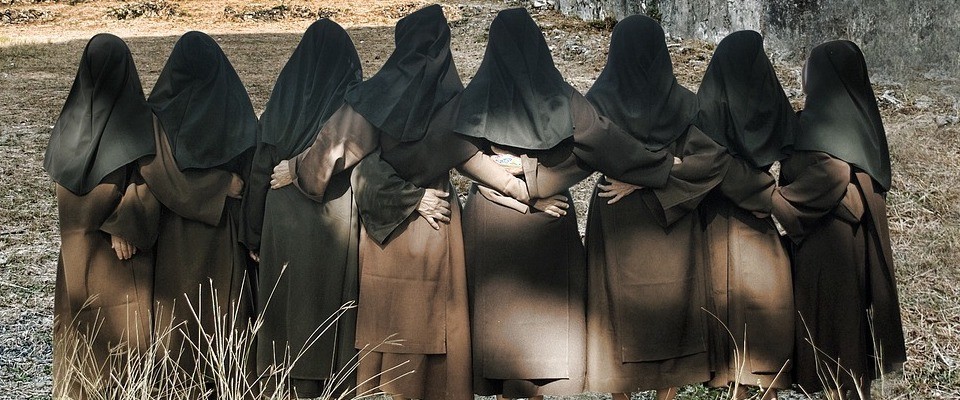- Feb 5, 2002
- 166,654
- 56,276
- Country
- United States
- Faith
- Catholic
- Marital Status
- Married
- Politics
- US-Others
Opera has traditionally had little interest in Christian orthodoxy, except as a foil for some preferred spiritual excellence. The lyric stage has concerned itself mostly with the political life and especially with the erotic life, and left conventional godliness out of the picture. Of course Teutonic gods who go up in flames, quasi-karmic Fate, demonic religious personnel, and even some actual demons may have their appointed place, but old-fashioned Christianity is deemed out of order. So when the French Roman Catholic composer Francis Poulenc (1899–1963) wrote his 1957 masterpiece, Dialogues des Carmélites (Dialogues of the Carmelites), the work’s celebration of heroic piety defied the secular spirit of the art form.
Dialogues sings of the anguish and martyrdom of a small convent of nuns during the French Revolution; the officers of the new regime of terror order the sisters to renounce their vows and disband—or be killed. Georges Bernanos, best known for his novel Diary of a Country Priest, wrote the prose libretto, originally a screenplay, and then the script for a successful stage play. Poulenc’s great theme is courage, specifically the strength to cleave to the faith in the face of political upheaval that threatens to destroy everything—even the integrity of one’s soul.
The revolution's terror state is the work of men who claim not to believe in something so deplorably unreal as evil spirits but who are nevertheless the agents of principalities and powers: When the revolutionary mob makes its entry in the opera, the wildly disordered music, unlike anything that came before, announces the new secular dispensation, which is actually the unholy Pandemonium. The nuns sing in harmony, but the revolutionary masses sing in frenzied discord. The clamor echoes in the individual voices of the revolutionary apparatchiks: the unctuous tenor of the First Commissioner; the hectoring bass of the Second Commissioner, who reads the expulsion decree; the suave baritone of the First Officer, who promises republican goodwill provided the nuns ordered to disband keep their noses clean—all issue from the original disorder of the murderous horde.
Continued below.

 www.firstthings.com
www.firstthings.com
Dialogues sings of the anguish and martyrdom of a small convent of nuns during the French Revolution; the officers of the new regime of terror order the sisters to renounce their vows and disband—or be killed. Georges Bernanos, best known for his novel Diary of a Country Priest, wrote the prose libretto, originally a screenplay, and then the script for a successful stage play. Poulenc’s great theme is courage, specifically the strength to cleave to the faith in the face of political upheaval that threatens to destroy everything—even the integrity of one’s soul.
The revolution's terror state is the work of men who claim not to believe in something so deplorably unreal as evil spirits but who are nevertheless the agents of principalities and powers: When the revolutionary mob makes its entry in the opera, the wildly disordered music, unlike anything that came before, announces the new secular dispensation, which is actually the unholy Pandemonium. The nuns sing in harmony, but the revolutionary masses sing in frenzied discord. The clamor echoes in the individual voices of the revolutionary apparatchiks: the unctuous tenor of the First Commissioner; the hectoring bass of the Second Commissioner, who reads the expulsion decree; the suave baritone of the First Officer, who promises republican goodwill provided the nuns ordered to disband keep their noses clean—all issue from the original disorder of the murderous horde.
Continued below.

The Greatest Catholic Opera | Algis Valiunas
Opera has traditionally had little interest in Christian orthodoxy. So when composer Francis Poulenc wrote his masterpiece, Dialogues des Carmélites, the work’s celebration of heroic piety defied the secular spirit of the art form.
